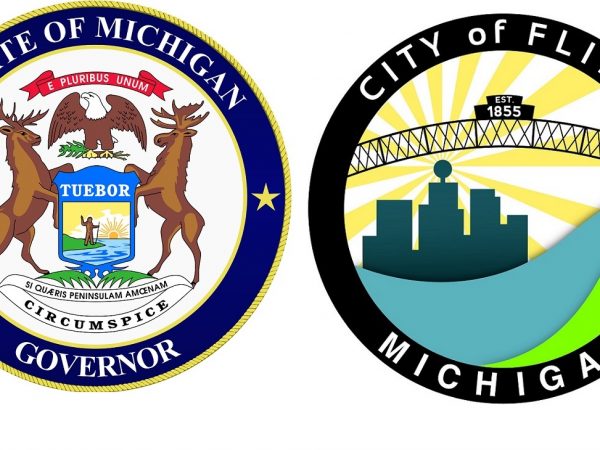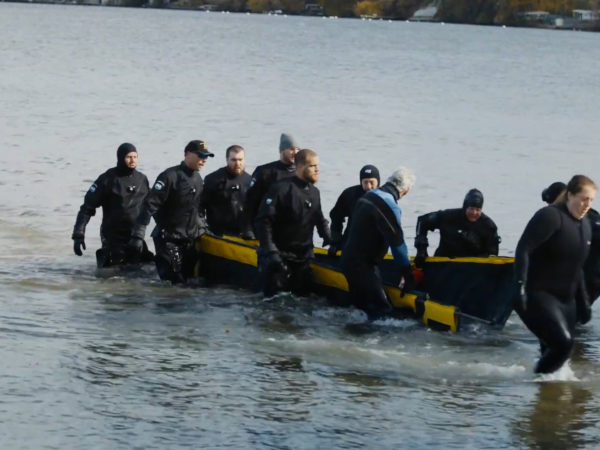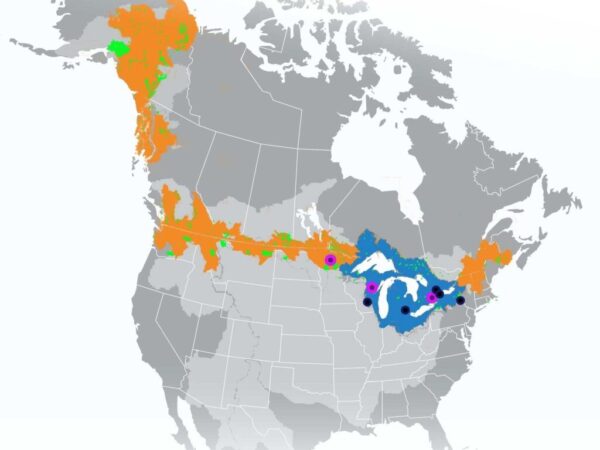
By Izzy Ross, Interlochen Public Radio
This coverage is made possible through a partnership with IPR and Grist, a nonprofit independent media organization dedicated to telling stories of climate solutions and a just future.
Gov. Gretchen Whitmer released the MI Healthy Climate Plan last year. Now the state legislature is trying to take those goals and turn them into law.
Lawmakers are going for extensive changes. Both the Senate and the House are exploring climate packages that include setting a carbon-free energy standard, reducing energy waste, and directing the state Public Service Commission to prioritize certain goals when overseeing utilities, like clean energy, reliability and affordability.
There are also attempts to increase access to solar power and expand electric vehicle charging stations, among other things. But how far supporters will get is still up in the air, especially given that Michigan has struggled to create a unified climate policy over the years.
Big bucks
Beyond the urgent need to address climate change, there is a lot of money on the table through the 2022 Inflation Reduction Act — the biggest federal investment in fighting climate change in history.
State Rep. Betsy Coffia (D-Traverse City) said Michigan needs to adopt certain laws in order to take full advantage of that funding, and that she and her colleagues aim to do so this year.
“The federal government, through the Inflation Reduction Act, has billions and billions of dollars that become available to states if we adopt these clean energy standards,” she said. “Not just suggestions and goals, but actual standards in law. And billions of dollars would go to other states if we do not adopt these standards this year.”
Billions of dollars for clean energy infrastructure have already come to the state through the act, and advocates say by passing strong climate legislation, Michigan has a better chance of competing with other states for billions more.
The governor and Democratic legislators have also discussed giving the state authority to allow for more renewable energy installations. Right now, local governments have individual control of how utility-scale projects are permitted, and township restrictions have slowed or stopped various developments across the state.
The Michigan Township Association’s director, Judy Allen, has spoken out against changing that, saying it would strip away local decision-making. Still, legislators like Rep. Abraham Aiyash (D-Hamtramck), the House majority floor leader, want to streamline the approval process by letting the state Public Service Commission greenlight renewable projects.
“Because there is no other way,” he said. “If we are not setting a rapid pace for investing in solar and wind, we will not meet the energy centers that we are going to be setting.”
Political pressures
This is the first time in almost 40 years that Democrats are occupying the governorship and both chambers of the Legislature, so it could be a now-or-never moment for them to pass bills on issues like climate change without major compromises, especially with an election coming next year that could take them out of power.
While they hope to leverage their slim majority in the House and Senate to get these bills through, some Republican lawmakers have worked on climate legislation as well.
For instance, both Interlochen Rep. John Roth and Upper Peninsula Sen. Ed McBroom have sponsored bipartisan community solar bills this year. McBroom also helped introduce a bill to lift so-called “solar caps,” which would allow customers to sell more electricity from their own residential solar installations to utilities.
Still, there has been significant opposition to many of the climate proposals.
“There’s a lot of discussion out there about moving very, very quickly, in a way that I think is not healthy for the state of Michigan,” said state Sen. John Damoose (R-Harbor Springs), who is on the Senate Energy and Environment Committee. “We need to be able to go forward rationally and really slow down and talk about this, rather than ramming through a political agenda. And I’m not sure which of the two is happening right now.”
Damoose said he worries about things like the state’s push for more electric vehicles and relying too heavily on renewable energy.
But he’s on board with phasing out coal, and he said turning down the heat and working across the aisle is important — he hopes to compromise and keep natural gas, nuclear energy and a process called carbon capture on the table. Carbon capture is a method of removing CO2 from the atmosphere and repurposing it or storing it deep underground.
“I’m hearing that the prohibition on carbon capture might be changing, which would be a very good thing, in my mind,” he said in an interview Wednesday morning. “There’s a number of changes. So that would be great to slow it down a little bit.”
Democrats have already made some concessions. They are deferring the proposed deadline to reach a carbon neutral energy standard by five years, from 2035 to 2040. And Michigan Advance reported that Senate bills have been amended to include provisions for carbon capture and consider existing biomass fuel plants as renewable energy when the law takes effect.
Lasting laws
Major climate bills, like an aggressive clean energy standard, would likely divide legislators along party lines, said University of Michigan Professor Barry Rabe, a fellow at the Brookings Institute who focuses on policy and climate change. Still, how new laws affect people could depend on where they live, which means location may be as important as party,
“This could really mean different things to different constituencies in terms of economic development and jobs,” he said. “Do you want wind? Do you want to keep a nuclear power plant going?”
Climate legislation also has to last in order to be effective, Rabe said. For any changes to be successful in the long run, lawmakers need a plan in place to make those things happen.
“Can you bake durability into this and make it last and work effectively over a long period of time?” he said. “A lot of Midwestern states, including Michigan, have really struggled with this for years or decades, where you’ll have a short burst, and then it kind of gets dialed back or pulled back.”
Unprecedented federal funding and an ambitious climate agenda from the governor have created a unique opportunity for the legislature to make real progress on laws fighting climate change, Rabe said.
The measure of success, he said, will come down to whether the legislature can not only match the governor’s ambitions, but also create something that’s politically durable.
Catch more news at Great Lakes Now:
‘Solar grazing’ is a way for farmers and solar companies to use land. But there are challenges
Great Lakes EPA office reaffirms 2030 cleanup goal for Detroit River, other contaminated sites
Featured image: The Gallery of the Governors in the Capitol’s Rotunda, Photo by David Marvin via michigan.gov




